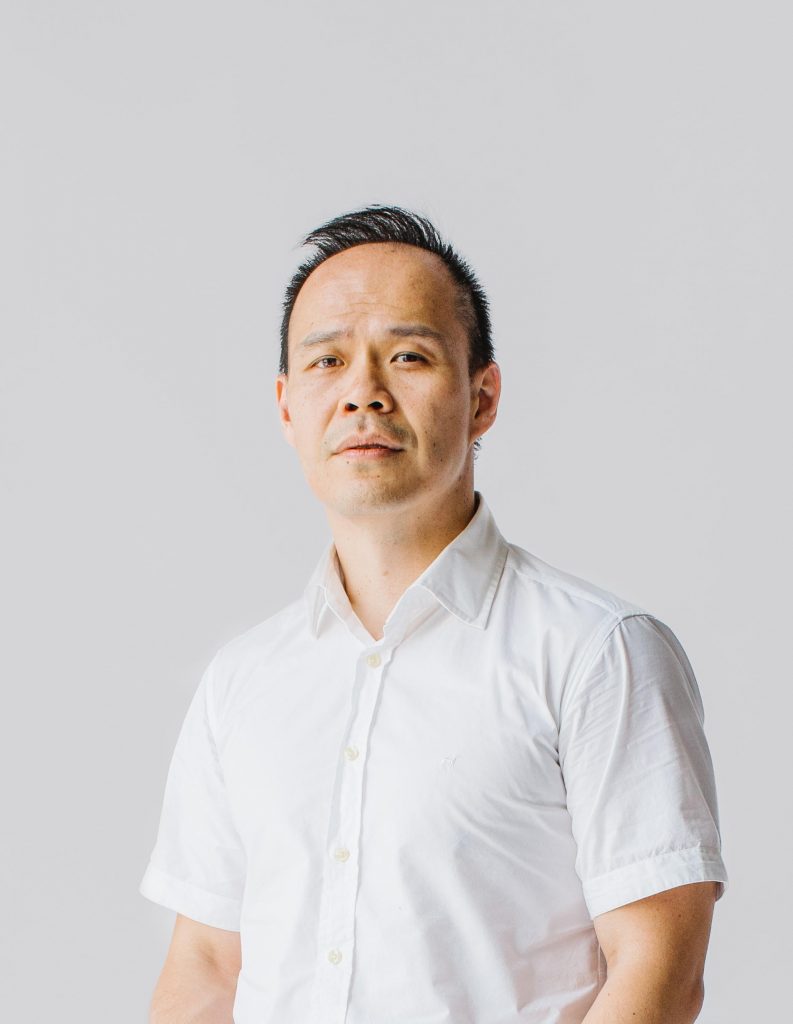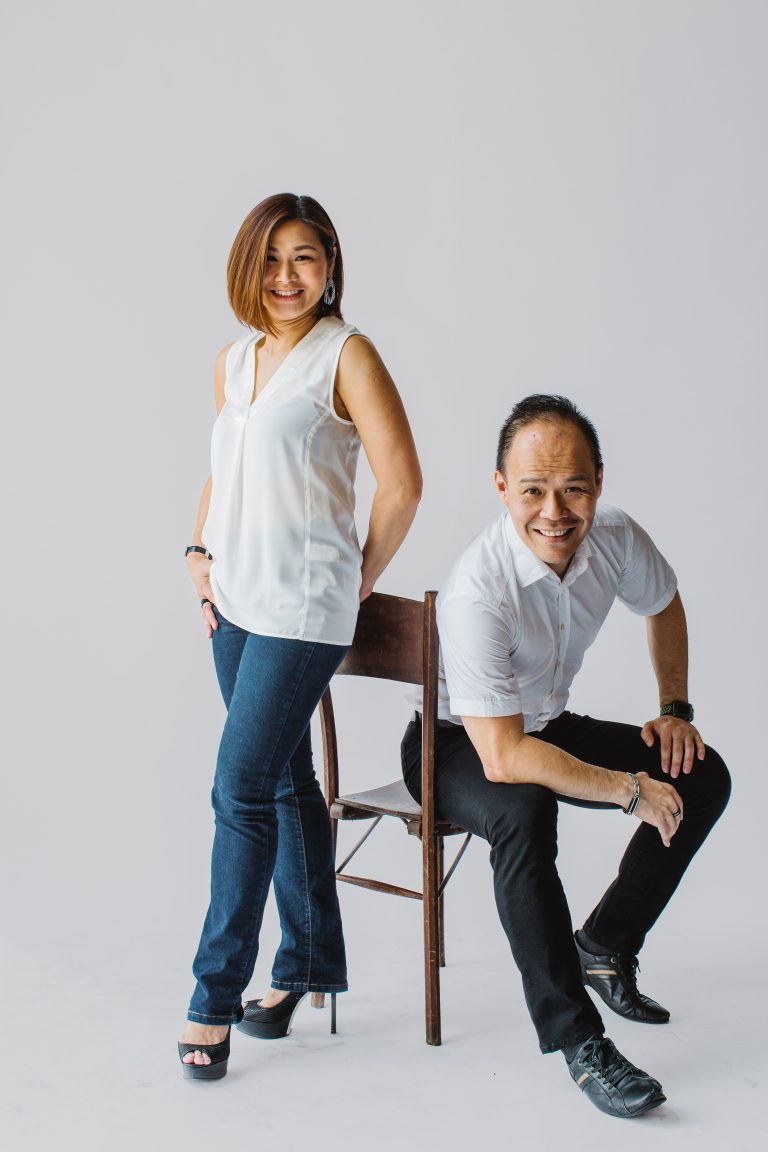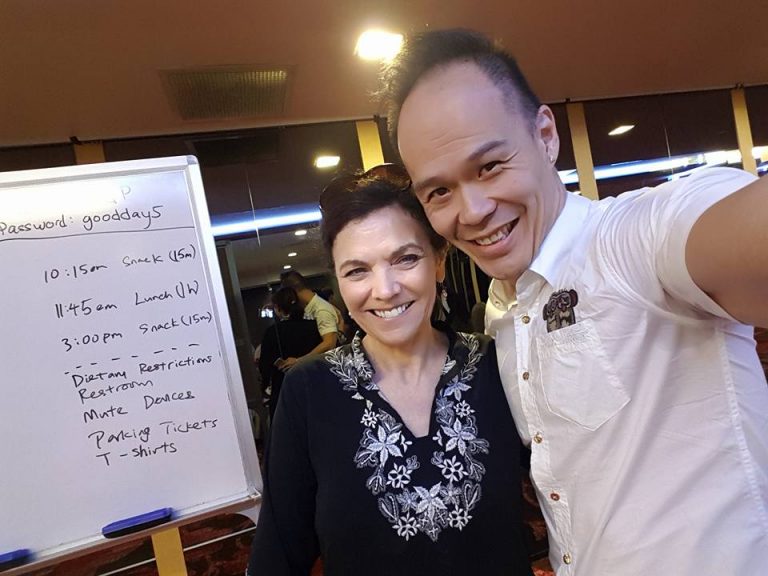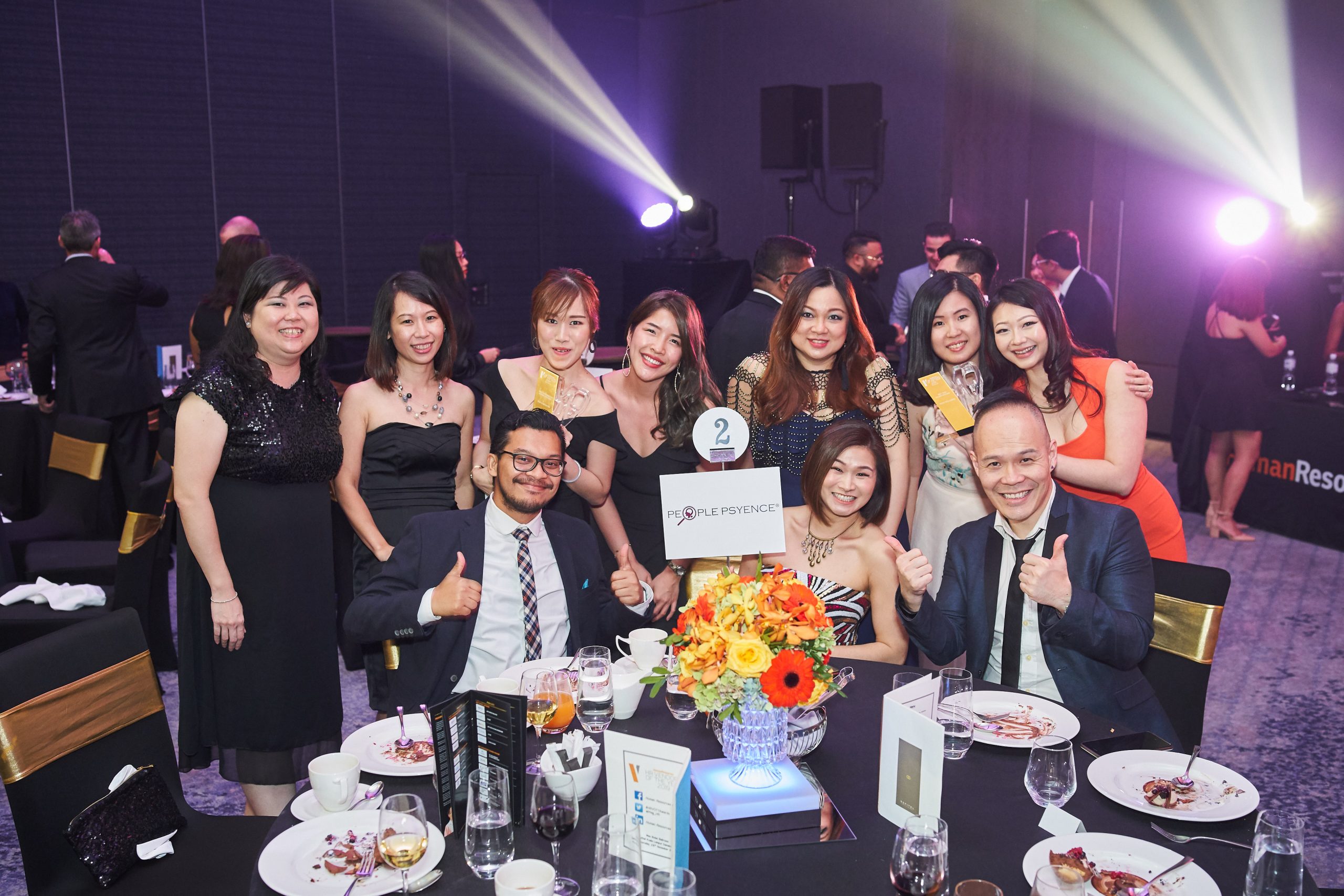Gamification Expert Series: Jaxton Cheah, CRO (eLearningMinds Group) & Game Thinking Coach
by Prapim / January 20, 2020

Welcome to our 2nd Gamification Expert Series, powered by Gametize!
In this series, we feature industry experts as they share their knowledge, tips and tricks, and advice on how to gamify programs in their organizations. In our second Gamification Expert Series, we speak to Jaxton Cheah, one of Gametize’s champions as he shares with us his experiences in providing gamification services and training to clients across Malaysia and other countries within the APAC region.
Jaxton Cheah is the Futuring Psyentist® at People Psyence®, a gamification consulting firm, and CEO of Talent Intelligence, the gamification training arm of People Psyence®. A serial entrepreneur with a passion for human-centered design, Jaxton believes that the adoption of technology should always start from an understanding of human needs.
Jaxton met Keith several years ago through a mutual client project. Their meeting sparked a conversation on how Jaxton could use Gametize to design gamification experiences that would achieve his project objectives, especially in L&D.
From there, Jaxton quickly became one of Gametize’s top power users, using his expertise in gamification consulting and training to design unique experiences for clients across various industries in Malaysia and other countries within the APAC region, such as banking, supply chain management, and engineering & construction.
G: Gametize
J: Jaxton
J: Jaxton
G: Hi Jaxton! We know you’re busy, so thanks for taking the time to have a chat with us – what are you up to today?
J: I’m an early riser, so I just finished with my workout at the gym. I find that it really helps to energize me for the day ahead – because of my business development role in People Psyence®, I attend a lot of meetings and pitches in my day-to-day. So, I’m off to another meeting with a client after this!
G: Good luck with your meeting! We’re curious, what do you usually do for these meetings?
J: Since we’re a gamification consulting firm, in order to address our client’s needs, we’ll usually sit down with their project management team to facilitate brainstorming sessions, offer advice, and assist them with their project implementation.
For example, we’ll walk them through our Game-Thinking Framework to define our approach and ideation process to gain a deeper understanding of our users.
G: That sounds intense. I’m sure it took a lot of hard work and dedication to get to where you are now – can you tell us briefly about your background?
J: Yes! I’m a serial entrepreneur. I founded Talent Intelligence in 2008 as a soft skills training company that looks into various domains, such as leadership, coaching, and communication skills.
As Talent Intelligence has the expertise in gamified training, it aligned with People Psyence®’s passion in understanding human behavior at the workplace. Hence, the acquisition took place in 2018. After some restructuring of the service offerings, Talent Intelligence became the training arm that applies gamification as part of our deliverables, while People Psyence® provides gamification consulting services to clients.
G: We love that you’re really passionate about what you do. Tell us your secret, how do you keep motivated?
J: Because of my belief! I’d consider myself an early adopter of learning technologies.
“I strongly believe that gamification and behavioral design plays an important role in successful technology adoption.”
J: But I definitely learned this the hard way…A few years ago, we had a painful experience – our company was building a mobile learning app for a client, but we ended up having to scrap it completely.

Jaxton's journey in gamification started from a painful learning experience
G: Ouch, what happened?
J: In 2012, our training company (Talent Intelligence) started to adopt technology into our solutions. For one of our client projects, we built a mobile learning app. We actually went on all the way to creating a full-feature app, but when we launched it, we found it wasn’t meeting the client’s objectives. A lot of the KPIs weren’t being met – participation rate was low and people just weren’t motivated to get on-board.
As a result, we had to scrap the whole project. It was a painful learning experience, and we quickly discovered what does and doesn’t work for user experience. That was the catalyst for me to start looking into how to better understand what motivates people to change their behavior, and that was when gamification started to enter into the picture for me. So, I started researching and came across some articles on gamification.
The idea of gamification intrigued me because I’m a gamer myself. Did you know I used to spend 50-60 hours a week playing games?
G: 50-60 hours a week? That’s practically a full-time job. What were you playing?
J: [Laughs] Clash of Clans, games as such. I was definitely a game addict back then, and invested a lot of time and money into those games. That’s why it struck me that gamification could be a great idea: could we somehow take the same feeling of motivation that people have while playing games and bring that into the learning space? How could we use gamification to get learners to learn from a mobile learning platform, or adopt new technologies?
G: So that was the start of your journey into gamification. What did you do next?
J: You could say I had a literal journey – I signed up for some gamification courses on Coursera and had myself certified, but I still felt that I didn’t have a comprehensive understanding of what gamification could really do. So, I traveled to Spain in 2016, explored Yu-Kai Chou’s Octalysis framework, and even made my way to Silicon Valley for Game Thinking Certification and followed by working as a coach to more than 100 participants all over the world.

G: Changing your mindset from an “expert” to a “beginner” – what do you mean by that?
J: You could have the best designs but without understanding your users, you might not even know where the problem lies. That’s why I am such a big supporter of user research. The solution need not be a very “cool” feature, and it could actually be quite simplistic.
How Jaxton works with clients such as KWAP to build a people-first approach, creating long-term engagement and motivation
G: We can imagine you need to do a lot of user research for all the client projects you work on. What are some common challenges your clients face?
J: A common problem our clients face is that conventional learning methods are very time-consuming and costly because employees are scattered across the region, so they might have to do a lot of traveling or allocate a lot of time from their working day to do the learning activities.
So, many clients have approached us on how to help their employees to learn faster and more effectively without impacting productivity at work. From there, we explore ways we can design long-term engagement strategies to ensure sustainable participation rates.
Of course, there are other challenges, such as time and budget – they always need it done yesterday [laughs].
G: That’s a tall order. How do you start tackling challenges like that – where do you even begin?
Designing a project for long-term engagement is not straightforward, because we have to constantly anchor our on the people first.
“A lot of our clients want to “go digital”, but the change has to first come from the mindset, by addressing the culture and behavioral norms.”
That’s why we usually start with user research. We have just wrapped up a project with KWAP [Government agency managing the pension scheme for Malaysia’s public employees] called Let’s Ace It; it was designed to socialize KWAP’s 7 core values for more than 600 employees scattered across different parts of Malaysia.
G: Could you tell us a bit more about Let’s Ace It?
J: KWAP wanted to create awareness and nurture understanding in their people on their new Vision, Mission and Values (VMV), and one very important criteria they wanted was the active involvement of their employees in the process, not just as ordinary participants.
For this project, we started with a 3-month design phase, where we used our methodology on user research and iterative process to create many pilots before a full launch. One critical move we took was to identify and interview a group of early adopters in the organization; it helped a lot when we managed to leverage the community to test our prototypes before getting into mass rollout of the game. In the case of KWAP, we identified about 15 people across different disciplines in the company as “the right people”.
G: What type of content did you and your team come up with for Let’s Ace It?
J: We helped to develop a two-phase approach for KWAP. For the first part, we introduced and applied design thinking methodology at the workshops for 179 KWAP participants, to guide them on how to create a prototype based on 1 of the 7 KWAP values. Then, the resulting prototypes were put through a feedback iteration stage before being gamified on the Gametize platform.

That’s when we moved on to the gamification phase. We built content onto Gametize with the idea in mind to get KWAP employees to actively engage with the VMV, and we took one step further to request additional employee demographics data, so we could analyze and discover any interesting findings in order to develop targeted interventions.
G: How did the project go?
J: It was very well-received! The project achieved a 99% participation rate, with many of them completing the entire journey over a 6-month period. The high participation rate definitely helped the client to make further decisions to continue rolling out such high-impact initiatives.
[Editor’s note: If you’d like to learn more about People Psyence’s project with KWAP, you can read the case study here.]
Moving towards driving business results in 2020
G: Congrats on the success of Let’s Ace It! Let’s talk about what’s on the road ahead for you. How are things looking for People Psyence® in 2020?
J: Well, for People Psyence® in 2020, we are eager to move away from workplace-related projects and more towards business-related projects. While we’re still focused on learning, we also aim to work on projects that directly drive or contribute to business results and impact sales.
One way is through technology system integrations. I truly believe such integrations are very crucial to driving business results by finding ways to gamify business data, such as revenue, productivity, and sales.

G: We’re certainly looking forward to seeing People Psyence® achieving that in the year ahead. Speaking of the future, what about Gametize – what would you love to see from us to make your game creation experience even better?
J: I’ve seen a lot of improvements since I started using Gametize, and I can’t wait to see how your team can take the platform to the next level. We want to use Gametize for even more collaboration and communication. Hope you guys can work on features such as team chats or group chats!
G: Those features would definitely help to make our platform even more powerful and sustainable for long-term projects. Do you have any words of wisdom for those looking to step into the world of gamification?
J: An easy way to start is to try out a trial plan on Gametize, and look out for the resources and templates! [Disclaimer from Editor: This wasn’t sponsored – thanks so much for the endorsement, Jaxton!]
“Another thing – listen to your users and be open to getting more people to try out your game.”
J: By listening to their feedback, you can improve your game through an iterative approach.
G: We definitely agree. One last question: do you still play games?
J: [Laughs] I don’t actually play that many mobile games anymore, although I do play some of the PS4 games such as Need for Speed and Horizon Zero Dawn. There’s so much to learn from well-designed games by looking at how they design their progression system to master skills needed in the game – it inspires me to use those ideas to work on my projects.
G: Thank you Jaxton! We’re inspired by your forward-thinking approach and can-do attitude, and we will definitely think about how the next games we play can inspire us to build better gamification experiences as well. For our readers, you can learn more on the projects Jaxton and People Psyence® have worked on by reading more about their case studies here.
About People Psyence® & Talent Intelligence
People Psyence® is a consulting service based in Kuala Lumpur, Malaysia, with in-depth experience in psychometric assessments to manage organizations’ “people strategy”, including talent identification and management, leadership development, competency modeling, succession planning, performance management, and career pathing.
Talent Intelligence is an affiliate of People Psyence® and offers a wide array of corporate training by leveraging on the latest technologies, such as incorporating big data and gamification to provide learning in areas such as Leadership Development, Emotional Intelligence, Coaching & Mentoring, and other soft skills.
